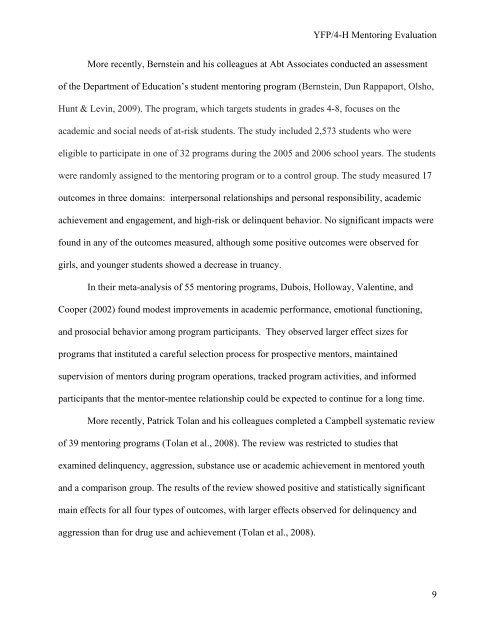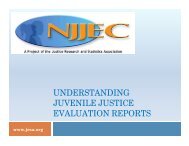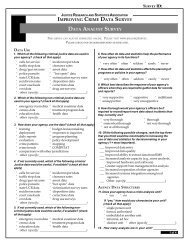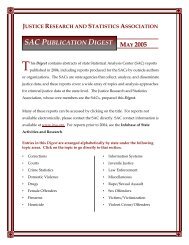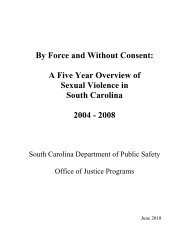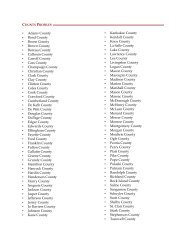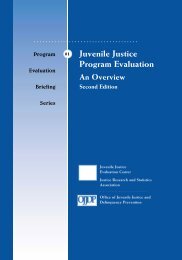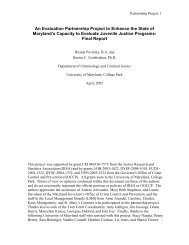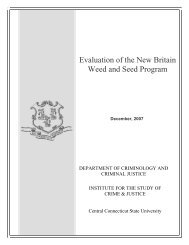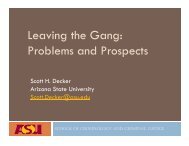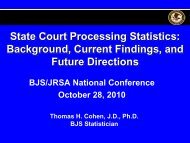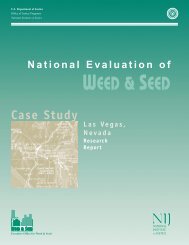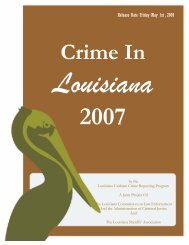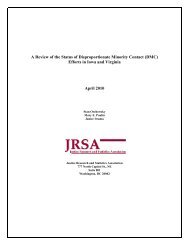A Process and Outcome Evaluation of the 4-H Mentoring/ Youth and ...
A Process and Outcome Evaluation of the 4-H Mentoring/ Youth and ...
A Process and Outcome Evaluation of the 4-H Mentoring/ Youth and ...
You also want an ePaper? Increase the reach of your titles
YUMPU automatically turns print PDFs into web optimized ePapers that Google loves.
YFP/4-H <strong>Mentoring</strong> <strong>Evaluation</strong><br />
More recently, Bernstein <strong>and</strong> his colleagues at Abt Associates conducted an assessment<br />
<strong>of</strong> <strong>the</strong> Department <strong>of</strong> Education’s student mentoring program (Bernstein, Dun Rappaport, Olsho,<br />
Hunt & Levin, 2009). The program, which targets students in grades 4-8, focuses on <strong>the</strong><br />
academic <strong>and</strong> social needs <strong>of</strong> at-risk students. The study included 2,573 students who were<br />
eligible to participate in one <strong>of</strong> 32 programs during <strong>the</strong> 2005 <strong>and</strong> 2006 school years. The students<br />
were r<strong>and</strong>omly assigned to <strong>the</strong> mentoring program or to a control group. The study measured 17<br />
outcomes in three domains: interpersonal relationships <strong>and</strong> personal responsibility, academic<br />
achievement <strong>and</strong> engagement, <strong>and</strong> high-risk or delinquent behavior. No significant impacts were<br />
found in any <strong>of</strong> <strong>the</strong> outcomes measured, although some positive outcomes were observed for<br />
girls, <strong>and</strong> younger students showed a decrease in truancy.<br />
In <strong>the</strong>ir meta-analysis <strong>of</strong> 55 mentoring programs, Dubois, Holloway, Valentine, <strong>and</strong><br />
Cooper (2002) found modest improvements in academic performance, emotional functioning,<br />
<strong>and</strong> prosocial behavior among program participants. They observed larger effect sizes for<br />
programs that instituted a careful selection process for prospective mentors, maintained<br />
supervision <strong>of</strong> mentors during program operations, tracked program activities, <strong>and</strong> informed<br />
participants that <strong>the</strong> mentor-mentee relationship could be expected to continue for a long time.<br />
More recently, Patrick Tolan <strong>and</strong> his colleagues completed a Campbell systematic review<br />
<strong>of</strong> 39 mentoring programs (Tolan et al., 2008). The review was restricted to studies that<br />
examined delinquency, aggression, substance use or academic achievement in mentored youth<br />
<strong>and</strong> a comparison group. The results <strong>of</strong> <strong>the</strong> review showed positive <strong>and</strong> statistically significant<br />
main effects for all four types <strong>of</strong> outcomes, with larger effects observed for delinquency <strong>and</strong><br />
aggression than for drug use <strong>and</strong> achievement (Tolan et al., 2008).<br />
9


